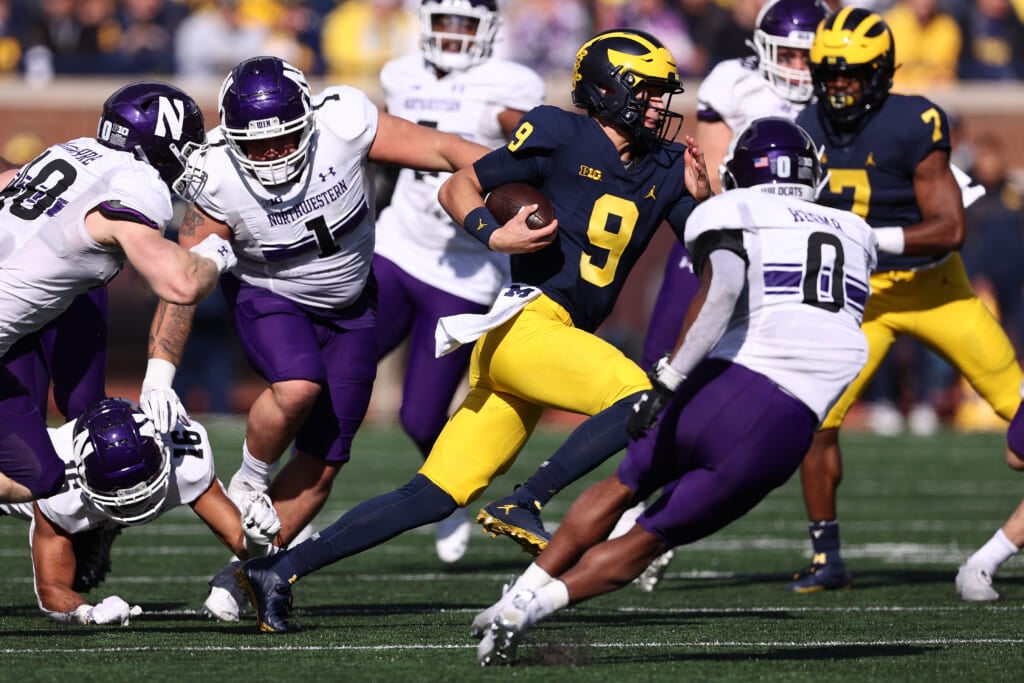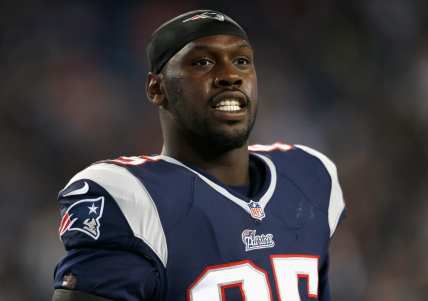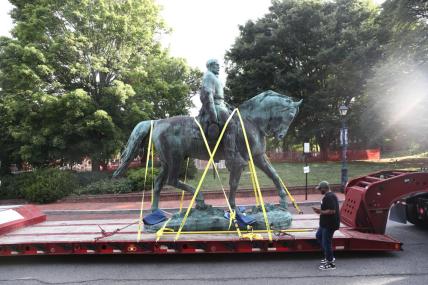Michigan-Northwestern football game honors George Jewett, the first Black player at either school
The inaugural George Jewett Trophy game was held Saturday afternoon between the No 6. ranked Michigan Wolverines and unranked Northwestern Wildcats
Saturday’s matchup between the University of Michigan Wolverines and the Northwestern University Wildcats was the 76th meeting between the rival college football programs. But, it was the first time the game honored a trailblazing athlete whose life and legacy are integral to both schools’ histories.
After the game, the winner received a trophy named in honor of George Jewett, the first Black football player for either schools’ program. Announced by the schools in February, the game is also the first Football Bowl Subdivision (FBS) rivalry game trophy named after a Black player.

Born in 1870, George stood out among his peers both on the football field and in the classroom from an early age, earning the honor of valedictorian at what is now Ann Arbor Pioneer High School in Michigan while starring as a three-sport athlete for the school’s football, baseball and track teams.
Opting to continue his educational and athletic careers at the University of Michigan, George pursued a medical degree while suiting up for the Wolverines as a fullback, halfback, and kicker during the 1890 and 1892 seasons.
According to the Bentley Historical Library at Michigan, George was the target of racial harassment from other schools’ teams and spectators alike, namely being the subject of a “Kill the n*****” chant from the crowd at Albion College during an away game in 1890, as recalled by former teammate Roger Sherman.
Sherman said the crowd not only tried to lure George into a violation to get him ejected from the game, but also stormed the field in a violent rage which required police intervention. Not only did George stick it out through the remainder of the game, he led Michigan to a 16-0 shutout victory.
Also per the Bentley Historical Library, Michigan’s dean of medicine at the time, Victor Vaughan, told George he believed he could neither play football nor attend medical school at the institution because of his skin color.
In 1893, George left Michigan to complete his studies and football career at Northwestern, gracing the gridiron for another two seasons before receiving his medical degree and becoming a doctor in Chicago, Illinois.
Returning to Ann Arbor for a brief coaching stint at Michigan Agricultural College and Olivet in 1899, George left the position to open a dry cleaning and pressing business in the State Street District.
George later died in 1908 at age 38. He was survived by his wife and two sons. His great-grandson, Michael George Jewett, told NPR’s Michigan Radio that he grew up hearing of his great-grandfather’s accomplishments and couldn’t wait to watch the game Saturday afternoon.
“Getting an education beyond a certain level was just a very rare thing. Even more so for an African-American,” Michael George said.
“And then to play something like athletics and to excel in athletics to the level of what he achieved in terms of just like how many opportunities were actually out there. I mean, it’s really it’s quite an achievement and, you know, fitting that he should be honored this way. So we’re certainly thrilled and grateful that he’s being honored and honored for this,” he added.
Have you subscribed to the Grio podcasts, ‘Dear Culture’ or Acting Up? Download our newest episodes now!
TheGrio is now on Apple TV, Amazon Fire, and Roku. Download theGrio today!


